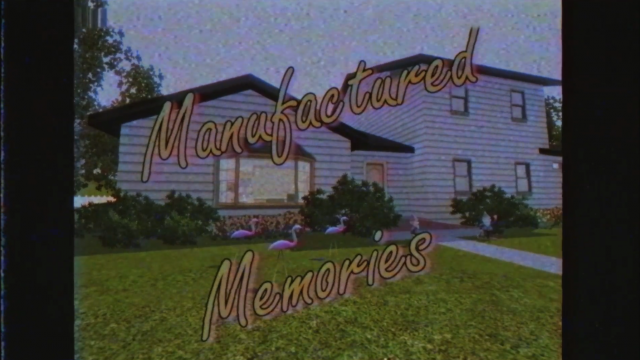
Manufactured Memories
Kitsch has endured through its familiarity. Its easily digestible emotions are ready-made, packaged for us in unabashed garishness. However, is this the potential danger of kitsch? Does its easiness prevent us from engaging meaningfully with its artifice?
We have saturated the artificiality of kitsch goods even further by presenting them in a hyper-real environment. Using the video game The Sims 3 we trace nine objects as they are staged and displayed in the digital dollhouse versus the white cube. First we tour the domestic sphere and see how these objects find comfort in the daily domestic setting. Using the same floor plan and consistent ordering of our objects, our curated pieces of kitsch are then presented in the white cube gallery. How does space change our relationship to kitsch?
We begin our kitsch tour with Tom Wesselmann’s Great American Nude satirizing female archetypes to sue it as an exaggerated still life. Paired with Norman Rockwell’s Ours…to fight for: Freedom from Want, an image of the idyllic American dinner table, Wesselman’s nude is presented in our home as a slab of meat. We question avant-garde art with Vladimir Nemukhin’s The Joker–made out of household playing cards–examining this piece as an example of kitsch as political art, needing to be inoffensive in order to be accepted under oppressive censorship. Additionally, there is the Feejee Mermaid, where we explore how kitsch culminates in the public imagination. Manufacture Memories highlights the complexities of kitsch and the varieties of materials and styles it encompasses, while exploring the contextual relationship given to it by space.
Curated by Georgina Candia, Emma Orlow, Kristen Peterson, Zach Phillips, Vick Quezada, and Micah Stimson
Institute for Curatorial Practice, summer 2016